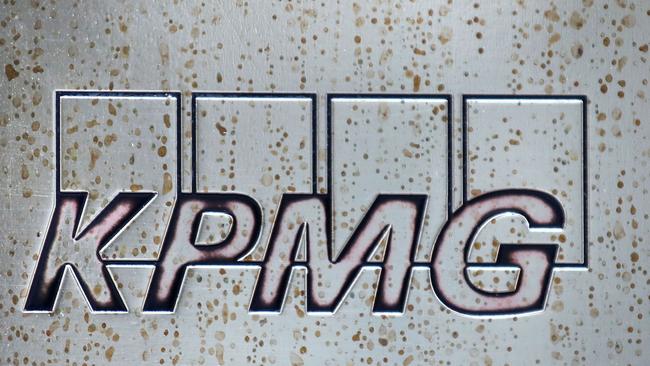KPMG to repay some coronavirus pay cuts after revenue ‘better than expected’
KPMG will repay one-third of the COVID-19-inflicted salary cuts made on staff in May and June.

KPMG will repay one-third of the COVID-19-inflicted salary cuts made on staff in May and June after a better than expected revenue performance by the business, and forecast revenue growth of up to 8 per cent in 2020.
Chief executive Gary Wingrove reassured the firm’s 9000 staff at a briefing on Tuesday afternoon that there would be no more forced redundancies after the Big 4 accounting giant cut 200 staff in early April.
It also asked employees to temporarily take a 20 per cent cut in monthly salary (from May until August), and partners an effective pay reduction of up to 36 per cent for the same period.
“I am confident at the moment that those measures should be enough for us, unless there is something I haven’t anticipated,’’ he told The Australian.
“Over the months of April, May and June, our trading results are less than budget but within the parameters we set. Slightly better. Not materially, but marginally. I can never give a cast iron guarantee that we won’t have any headcount reductions in the future. But at the moment I don’t see any on the horizon.”
Deloitte on Monday cut 7 per cent of its workforce, or at least 700 staff, despite the firm growing annual revenue by 10 per cent to $2.5bn amid the COVID-19 downturn.
The move followed rival PwC cutting 400 roles in its consulting and financial advisory businesses and support function last week as a result of the pandemic.
Mr Wingrove said the cash repayments, which will not be made to partners or executive directors, would represent 1 per cent of the annual salary of the majority of staff affected.
Under the salary cuts, an employee earning $120,000 a year would have received around $4000 less over May and June. They will now get back around $1333, inclusive of superannuation.
“If we are able to, we will top up that amount (again after June 30). If we can give more back we will, if we can’t we wont,’’ Mr Wingrove said.
“We still have the objective of getting our people back to 100 per cent of pay in September.”
Revenue growth
Mr Wingrove revealed the firm’s revenue growth would be “somewhere in the order of 7-8 per cent” for the year to June 30 after it fell by 15 per cent in April and May and he expected a similar fall for June.
Deloitte said on Tuesday its revenue was down 19 per cent in May.
“When we got to the end of February we were growing very strongly, at 12 per cent annualised. That fell for the next 3 months and we expect it to fall again in June. But we are within where we thought we would be, slightly better,’’ he said.
He said the audit, assurance and risk businesses were performing strongly, especially ahead of the June 30 year-end period.
Parts of KPMG’s consulting business focused on financial services and government are also performing strongly, as is its mid-market business. Deloitte said on Monday its consulting revenues had fallen 30 per cent but that government-focused work had held up.
KPMG’s front-end deals practice has been heavily impacted by the uncertain economic environment, but Mr Wingrove said: “We are seeing our transactions business now getting engaged on more potential deals.”
“I also expect the second half of this calendar year to be slower. I don’t think it will just be first quarter,’’ he said.
Coming months
“We still expect the coming months to be the period when the impact of COVID-19 on the business will peak. So I still believe it’s going to be a tough period ahead for our clients, and our firm.”
While he said it was too early to be specific about FY2021 projections for annual revenue growth, he did not “expect professional services to be flash over that entire 12 month period.”
“I don’t think people will be expecting growth over the financial year.
We will have to hold tight on the cost structure levers we have,’’ he said.
Speaking more broadly about the economic outlook he said the perspectives were mixed.
While there was some optimism, there was also significant concern around “the cliff” the nation may face in coming months if the federal government ends its support packages as planned in September.
However, Mr Wingrove said he was not in favour of the government extending wholesale stimulus measures across the entire economy into the remainder of the year.
“I think the economy has to get back on its own feet. I wouldn’t be a supporter of huge sustained stimulus from government,’’ he said, noting it needed to be targeted for particular areas of the economy.
He said he was not in favour of further lockdowns in response to the alarming rise in COVID-19 cases in Victoria over the past week.
“We’ve got to keep the economy moving. You don’t need to apply the same rules across the country if there is an outbreak in one geography.
I would be a proponent of opening up faster rather than slower,’’ he said.








To join the conversation, please log in. Don't have an account? Register
Join the conversation, you are commenting as Logout